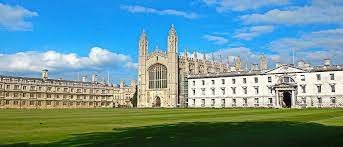South Korea, known for its rigorous educational standards and world-renowned universities, has become an increasingly popular destination for international students seeking advanced degrees. While the country’s universities are known for their competitive entry requirements, there is a growing number of institutions that offer opportunities for students with diverse academic backgrounds, including those holding HND (Higher National Diploma) certificates, as well as those who have achieved second class and third class degrees in their undergraduate studies.
This development opens doors for a wider range of students to pursue master’s degree programs in South Korea, a country celebrated for its innovation, rich culture, and academic excellence.
Criteria For Admission Into South Korea Schools And Universities
Gaining admission into South Korean schools and universities for master’s degree programs requires meeting various criteria that reflect the institutions’ standards for academic excellence and commitment to a diverse and inclusive student body. While specific requirements can vary by institution and program, here are some general criteria that applicants, including those with HND certificates, second class, and third class degrees, should expect:
- Academic Records: A detailed transcript showcasing the applicant’s academic performance during their undergraduate studies. Schools may have specific GPA requirements but also consider applicants with lower classifications who exhibit potential.
- Proof of Degree: A certified copy of the applicant’s bachelor’s degree or HND certificate. For HND holders, some universities might request additional qualifications or professional experience to supplement the HND certification.
- Language Proficiency: Demonstrable proficiency in English or Korean, depending on the language of instruction for the desired program. This typically requires scores from standardized tests such as TOEFL, IELTS for English, or TOPIK for Korean.
- Letters of Recommendation: Letters from academic or professional references that speak to the applicant’s abilities, character, and potential for success in graduate studies.
- Statement of Purpose: A well-crafted essay that outlines the applicant’s academic interests, professional goals, and reasons for choosing the specific program and institution.
Meeting these criteria does not guarantee admission, as competition can be fierce, and each program has its unique selection process. However, understanding and preparing these components can significantly improve an applicant’s chances of acceptance into their chosen master’s program in South Korea.
Schools in South Korea that Accept HND Certificates, Second Class and 3rd Class for Masters Degree Programs
Navigating the educational landscape in South Korea for international students with HND Certificates, as well as those who have obtained second class and third class undergraduate degrees, can initially seem daunting due to the country’s reputation for high academic standards. However, several institutions have adapted their admissions policies to be more inclusive, recognizing the value and potential of students from diverse academic backgrounds. Below is a list of schools known for their flexibility in accepting these qualifications for entry into their master’s degree programs:
1) Seoul National University (SNU)
Seoul National University is one of South Korea’s top universities, known for its strong academic programs and research output. While specific admission criteria may vary by program, SNU may consider applicants with diverse educational backgrounds for admission into master’s programs.
2) Korea University (KU)
Korea University is another prestigious institution in South Korea, offering a wide range of undergraduate and graduate programs. The university may consider applicants with non-traditional qualifications for admission into master’s programs, depending on the specific requirements of each program.
3) Yonsei University
Yonsei University is one of the oldest and most respected universities in South Korea, known for its comprehensive academic offerings and vibrant campus life. While specific admission criteria may vary, Yonsei University may consider applicants with diverse educational backgrounds for admission into master’s programs.
4) Hanyang University
Hanyang University is known for its strong engineering and technology programs, as well as other disciplines. The university may consider applicants with diverse educational backgrounds for admission into master’s programs, depending on the specific requirements of each program.
5) Pohang University of Science and Technology (POSTECH)
POSTECH is a leading science and technology university in South Korea, known for its research excellence and innovative programs. While admission criteria may vary, POSTECH may consider applicants with diverse educational backgrounds for admission into master’s programs.
Each of these institutions offers a unique opportunity for students with HND Certificates, second class, and third class degrees to further their education and career prospects. Prospective applicants are encouraged to reach out directly to the schools for detailed information on specific program requirements, application procedures, and deadlines to ensure a successful application process.
Universities in South Korea that Accept HND Certificates, Second Class and 3rd Class for Masters Degree Programs
For international students holding HND certificates or undergraduate degrees with second or third class honors, the search for a suitable postgraduate opportunity can often feel restrictive. However, South Korea’s educational landscape is becoming increasingly accommodating, with a number of its universities adjusting admissions criteria to welcome students from a broad spectrum of academic backgrounds. This inclusivity aligns with the country’s educational philosophy of fostering diverse talents and perspectives. Below are notable universities in South Korea recognized for their openness to applicants with varied academic qualifications for their master’s degree programs:
1) Kyung Hee University (KHU)
Kyung Hee University, located in Seoul, is known for its comprehensive range of academic programs and strong research focus. The university may consider applicants with diverse educational backgrounds for admission into master’s programs, depending on the specific requirements of each program.
2) Inha University
Inha University, situated in Incheon, offers a variety of graduate programs across different fields. The university may consider applicants with non-traditional qualifications for admission into master’s programs, subject to the specific requirements of each program.
3) Chung-Ang University (CAU)
Chung-Ang University, located in Seoul, is recognized for its academic excellence and global outlook. The university may consider applicants with diverse educational backgrounds for admission into master’s programs, depending on the specific criteria of each program.
4) Dongguk University
Dongguk University, with campuses in Seoul and Gyeongju, offers a wide range of graduate programs. The university may consider applicants with varied educational backgrounds for admission into master’s programs, subject to the requirements of each program.
5) Sogang University
Sogang University, located in Seoul, is renowned for its strong emphasis on liberal arts education and research. The university may consider applicants with diverse educational backgrounds for admission into master’s programs, depending on the specific criteria of each program.
These universities not only offer academic programs that cater to a wide range of interests and career goals but also embody the principle that education should be accessible to all, regardless of one’s previous academic performance. They demonstrate South Korea’s progressive approach to international education, encouraging students from various academic journeys to contribute to and benefit from the rich educational experiences available.
Conclusion
South Korea is home to a number of top-notch universities, many of which accept HND certificates, second class, and third class degrees for admission to master’s degree programs. These universities include the Korea Advanced Institute of Science and Technology (KAIST), Yonsei University, Sungkyunkwan University, and Seoul National University.
These universities are known for their high academic standards and rigorous curriculum, making them an attractive option for students looking to pursue a master’s degree in South Korea. Additionally, many of these universities offer scholarships and financial aid to help offset the cost of tuition.






